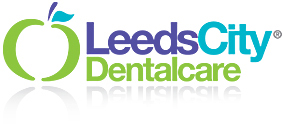The British Dental Health Foundation has welcomed the news that food labelling will become more consistent and hopes this will help improve oral health in Britain. The whole idea behind the new labelling system is to enable people to make healthy and informed choices about the food they eat. The system will be coded like traffic-lights and will show nutritional information including the number of calories, fat, salt, saturated fat and sugar content. This will enable people to easily compare similar foods. Major retailers including the big four supermarkets and food manufacturers are to use the consistent labelling system on their packaging.
Poor diet choices are a huge problem for the NHS and are estimated to cost billions of pounds annually. In addition a poor diet can negatively impact oral health. In the past, dentist in Leeds have criticized the amount of hidden sugars in foods, as sugar can be used as a cheap way of bulking out a product. However the chief executive of the British Dental Health Foundation, Dr Nigel Carter OBE, has commented that it’s the frequency of sugar consumption that’s of real concern, as more and more people have moved away from the traditional three square meals to a regime of constantly snacking throughout the day. Many of these snacks can contain high levels of sugar.
Why Do Even So-Called ‘Healthy Foods ‘Contain Hidden Sugars?
It’s hoped the public will become more aware of hidden sugars which are often listed under names such as fructose, glucose, sucrose and maltose, and cutting down on these substances will help both general and oral hygiene. One of the problems is that manufacturers can add sugar to a product as it helps to disguise a bland taste. This means some products that we tend to consider and being healthy, such as yogurt and cereal, and even fruit flavoured water can contain quite high amounts of sugar. Adding sugar to food can also give it a longer shelf life, especially in the case of foods such as breakfast cereals, tinned vegetables and fruits and bread. This makes it all too easy to eat more sugar than you realise.
Leads City Dentalcare definitely advocates of following a healthy diet that is low in sugar as part of a preventative dental care regime. Preventative dental care is about implementing a great dental care regime at home, combined with a good, healthy diet. This doesn’t mean cutting out everything containing sugar, but rather eating it in moderation, and being sensible about the frequency of snacks in between meals, and of course reading the labels. Patients are encouraged to visit Dr David Brown or another dentist at our Leeds surgery biannually or as often as recommended, and to book an appointment with a hygienist at the same time.
The problems caused by eating an unhealthy diet that contains too much sugar can be far-reaching. It can increase the risk of Type II diabetes, a condition that in turn can affect the whole body, including oral health. Eating too much sugar can also increase the risk of obesity, in turn raising the likelihood of developing heart disease, yet another condition that has been linked with poor oral health.



 Blog
Blog


